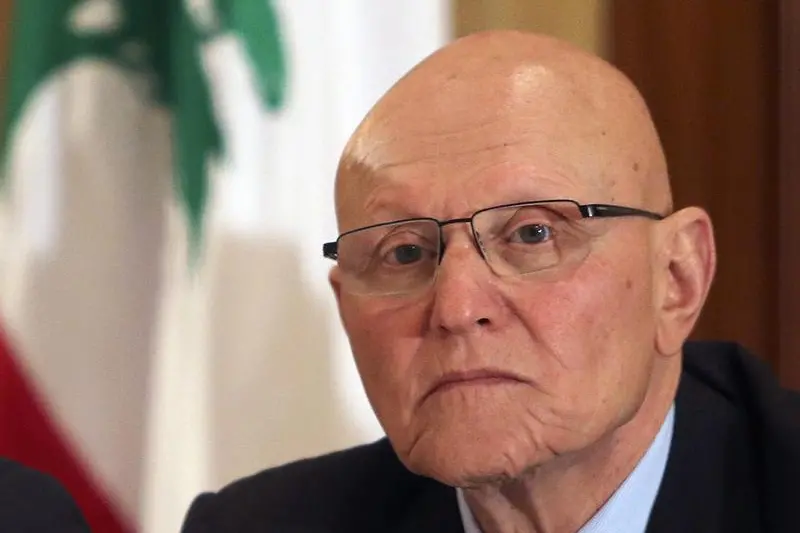PHOTO
(Adds material from Salam, background)
By Laila Bassam and Tom Perry
BEIRUT, Aug 23 (Reuters) - Protests against the Lebanese government turned violent for a second day on Sunday, and Prime Minister Tammam Salam threatened to resign as public discontent brought thousands into the streets.
Anger at the Salam-led unity cabinet grouping Lebanon's fractious politicians has come to a head over its failure to resolve a crisis over garbage disposal that reflects the wider failings of the weak state.
Salam's cabinet has been hamstrung by political and sectarian rivalries that have been exacerbated by wider crises in the Middle East, including the war in neighbouring Syria.
Salam, in a televised address, warned that Lebanon was headed towards collapse and that a bigger problem than the trash crisis was the country's "political garbage".
Thousands of protesters have taken to the streets of Beirut this weekend as part of the "You Stink" campaign directed at the government.
Water cannon and tear gas were fired at protesters, and demonstrators threw rocks and sticks at riot police as violence flared near Salam's offices in central Beirut.
Security forces fired into the air, clouds of tear gas wafted through the streets and shop fronts were smashed as police tried to force protesters from the area.
"The people want the downfall of the regime," chanted protesters. The National News Agency said petrol bombs were thrown at security forces.
Similar scenes unfolded on Saturday night. Dozens of people have been injured over the two days.
"Our issue is recovering all our rights - electricity, water and the rubbish we want removed from the streets," said Ahmed Qubaisi, an activist in his 20s.
THE FINAL STRAW
Salam, 70, has often expressed frustration at the failings of his government, which brings together the main Lebanese parties, including the Sunni-led Future Movement of Saad al-Hariri, Shi'ite Hezbollah and rival Christian parties.
The Salam government was formed with the blessing of rival regional powers Iran and Saudi Arabia, which exercise influence over rival Lebanese leaders.
Salam said that if a cabinet meeting scheduled for Thursday was not productive on issues including a tender to decide on a new refuse collection company, "there would be no necessity for the government after it".
"I warn that we are going towards collapse if matters continue," Salam said. "Frankly, I have not and will not be a partner in this collapse. Let all officials and political forces bear their responsibilities."
Should Salam resign, a caretaker government would stay on. His resignation would however trigger a constitutional crisis. In Lebanon, it is the president who appoints the prime minister.
But the presidency has been vacant since Michel Suleiman's term expired more than a year ago, and filling it requires a political deal many believe can only be brokered by Iran and Saudi Arabia.
"The trash is the straw that broke the camel's back, but the story is much bigger than this straw. It is the story of the political garbage in the country," Salam said.
He warned the heavily indebted government would be unable to pay salaries next month. Unable to issue new debt, Lebanon risked being classified "among the failing states".
The country's public debt currently stands at about 143 percent of gross domestic product, a government source said.
Salam vowed to bring to account officials responsible for what he described as an excessive use of force on Saturday.
New York-based Human Rights Watch said police had failed to uphold human rights standards and urged an investigation.
The trash crisis began last month when the main refuse tip for Beirut was closed, with no ready alternative. While collection has resumed, no solution has been found.
Lebanon, still rebuilding from its 1975-1990 civil war, has been jolted by spillover from the Syria war, including political violence and a flood of refugees.
Hezbollah, a powerful Iranian-backed party, is fighting alongside President Bashar al-Assad in the Syrian conflict.
(Additional reporting by Issam Abdullah/Reuters TV; Writing by Suleiman al-Khalidi in Amman; Editing by Andrew Roche) ((suleiman.al-khalidi@thomsonreuters.com; +962 79 5521407; Reuters Messaging: suleiman.al-khalidi.reuters.com@thomsonreuters.net))
Keywords: LEBANON CRISIS/POLITICS





















